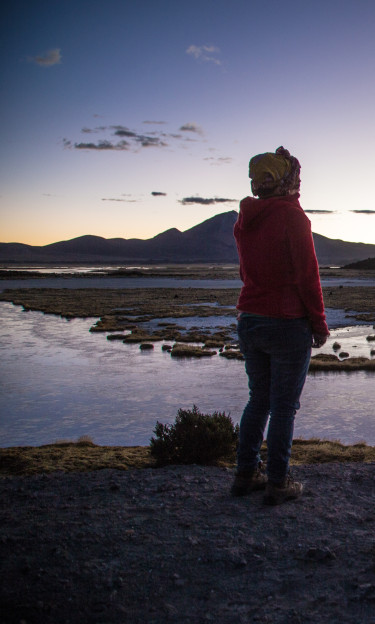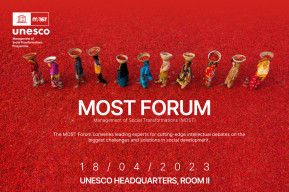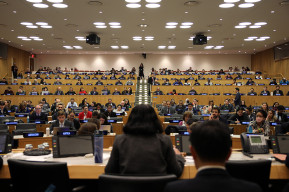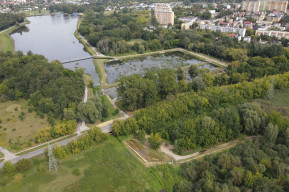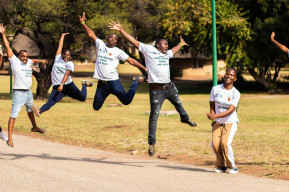Article
Rosalaura Romeo: Advocating for the protection of mountain environments and their communities

This year, International Mountain Day (11 December) will be celebrated under the theme “Women Move Mountains”. On this occasion, the UNESCO Man and the Biosphere Programme (MAB) and its World Network of Mountain Biosphere Reserve are sharing the perspectives of their mountain experts.
From gender roles to local economies, to science and policy, find out how women make a difference in better understanding and protecting mountains. Today we hear from Rosalaura Romero of the Mountain Partnership.
Rosalaura Romeo started working on mountain issues more than 20 years ago when FAO was tasked with promoting the first International Year of Mountains in 2002. A unit was created in FAO, and she was asked to transfer there because of her interest in this topic. Later that year, the Mountain Partnership was created, and what started as a small unit has now become the Mountain Partnership Secretariat, where Rosalaura has been working since then.
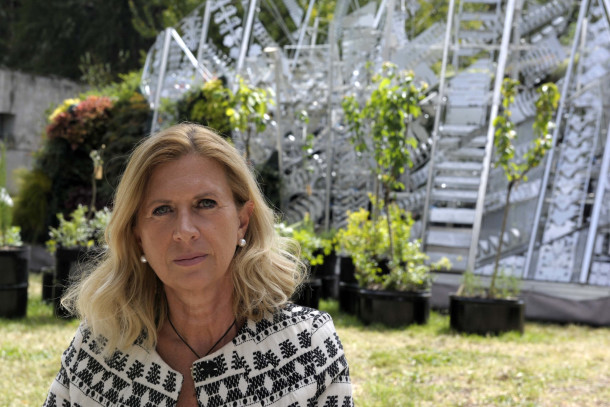
Why do mountains matter to you?
Mountains are very dear to me because I have a strong passion in human rights and environmental issues. When you look at what is going on in mountain areas, you see that the people living there often do not have the same rights as people in the lowlands and that their environment is not benefiting from the same protection or level of services and infrastructures.
In particular, women are often left behind in mountain areas as men migrate to other countries or to lowland areas for work. In many places, women are really the heads of household, but sometimes they do not have the legal status they need to play that role, so they are confronted with a lot of issues. I really enjoy working with mountain people and advocating for protecting their mountain environments because mountains do matter for us all. In the global pursuit for sustainable development, no environment or people should be left behind.
The Mountain Partnership’s hashtag is #MountainsMatter, could you tell us more about this initiative?
The Mountain Partnership was created during the World Summit on Sustainable Development 2002 in Johannesburg – also known as “Rio +10”. Its objective was to identify a new mechanism for promoting collaboration among different stakeholders. The Partnership was created to mobilize actors that are committed to sustainable mountain develop to work in an inclusive manner.
In that spirit, for the last 20 years, we have been working together to build on the commitment and enthusiasm of members to create concrete initiatives in mountains. To date, we have over 470 members, including governments, UN organizations, and a diversity of civil society organizations ranging from big NGOs and small grassroots organizations, to academic institutions and private sector companies.
We have well-defined areas of work. Most importantly, we do advocacy. Despite the relevance of mountains covering 27% of the Earth’s land surface and being home to more than 1 billion people, we often see mountains being seriously neglected in many UN processes. We build on the knowledge and experience of our members to ensure that mountains are included in the key global processes so that mountain issues get adequate attention, funding and investments, and specific policies.
Communication and knowledge management is another important area of our work. We also do capacity development, offering courses dealing with mountain themes, and promote joint initiatives and projects between members.
How can the managers of UNESCO mountain biosphere reserves contribute to implementing the global mountain agenda?
Mountain biodiversity is extremely rich but also very fragile. We know that mountain biodiversity has developed and flourished in many mountain areas because of the specific characteristics of mountain areas being protected and isolated. Mountain biodiversity is under attack because of climate change and other global changes like desertification, deforestation and human pressures. The Convention on Biological Diversity (CBD) had an important programme of work on mountain biodiversity that has been dormant, and we hope this programme can be resumed and revitalized to promote the protection of mountain biodiversity as an outcome of the ongoing Conference of the Parties of the CBD (COP 15).
We know that at a moment like this when global food security is at risk, mountain biodiversity can be an asset. At the same time, mountain biodiversity can also be relevant for invigorating mountain economies. We find many high quality niche products that can be relevant for many mountain communities to develop agriculture and boost livelihoods. Through the Mountain Partnership Products Initiative, we are working on this to promote equitable and ethical value chains.
Another big issue is climate change. Mountain biodiversity is already changing and being affected. Climate change jointly with human pressure are altering the natural habitat of mountain ecosystems, so we need to keep protecting mountain biodiversity and also share and exchange information about what is happening around the world.

What were the main outcomes of the recent Sixth Global Meeting of the Mountain Partnership, where the World Network of Mountain Biosphere reserves was presented?
First, allow me to explain how the Mountain Partnership is structured. As mentioned, we have 470+ members. They are represented by an 18-member Steering Committee that is elected to represent the members according to geographic and thematic groupings in electoral groups. The Steering Committee supervises and provides guidance to the work of the Partnership. Then we have a Secretariat hosted at the Food and Agriculture Organization of the United Nations in Rome, Italy where I work supporting the activities of the Partnership. Finally, there is the Global Meeting, which is organized approximately every four years.
These are excellent opportunities to bring all members together to have discussions about our strategies and priorities. This was particularly relevant after the COVID-19 pandemic and two years without face-to-face meetings; the recent Meeting in Aspen was a chance to restart and renew relationships with members. This year also marks an important celebration and focus on mountains: the United Nations declared 2022 the International Year of Sustainable Mountain Development.
A lot of important technical and political discussion took place, not only engaging Mountain Partnership members but also experts from the Aspen Institute and other important centres. It was a chance to not only focus on the challenges but to come up with solutions to scale up action.
The revisions to the Mountain Partnership’s three key strategy documents were approved. Also the Aspen Declaration was endorsed, which represents a strong commitment to continue promoting greater attention to mountain areas in the framework of the 2030 Agenda and the Sustainable Development Goals.
I would also like to highlight the strong support we received from Torre, the Mayor of Aspen. He declared that week the “Week of the Mountain Partnership”. It was interesting to discuss with such a progressive group of people in Aspen to learn about how they are protecting their own beautiful mountain environments.


